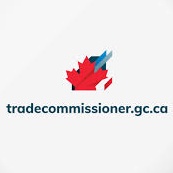
Canada Small Business Financing Loan (CSBFL)
At a glance
- Maximum amount : 1,000,000 $
- Open Date : June 30, 2021
- All industries
- Canada
- Non-profit
- Public or Parapublic institution
- For-profit business
- Sole proprietorship
- Non-financial cooperative
- $ 10,000,000 maximum revenue
- All organization sizes
- Canadians
- Startups
- Hospitals and Rehabilitation
- Nursing Homes
- Other Health Services
- Economic, Social and Community Development
- Business Associations
- Not Elsewhere Classified
- Business owners / entrepreneurs
- Nonprofits / charities
- All structures
- Local
- Municipal
- Regional
- Provincial
- National
Overview
The Canada Small Business Financing Loan (CSBFL) stands as a pivotal resource for small businesses across Canada, aiming to bolster their growth and operational efficiency. This program is specifically tailored to assist these enterprises in making significant investments towards the enhancement of their business infrastructure. Through the CSBFL, small businesses are afforded the opportunity to purchase new or used equipment, install essential systems, undertake renovations, and modernize their facilities, thereby ensuring they remain competitive and capable of meeting the demands of their respective markets.
Activities funded
- Acquisition and improvement of real property, including construction, renovation, and modernization for business operations.
- Implementation of leasehold improvements made by tenants or for tenants through a contractual agreement with an owner or franchisor.
- Purchase, capitalized installation, or improvement of equipment classified as capital assets for business operations.
- Purchase or development of computer software and websites for business use, provided by a specialized contractor/vendor with clearly defined contracts.
- Financing of intangible assets that are separable or arise from contractual or legal rights, such as franchise fees, goodwill as part of a going concern, incorporation costs, permits, licenses, and capitalized R&D costs.
- Coverage of working capital costs required for day-to-day business operations, including inventory, printed materials, professional fees, R&D costs, payroll, and rent.
- Payment of 2% registration fees associated with program loans.
- Decontamination of real property, when required by law and disclosed prior to disbursement, for eligible business operations.
Eligibility
- The applicant must be a person (individual, partnership, or corporation) carrying on or about to carry on a small business.
- The business must be carried on in Canada, with a place of business in Canada, and hold assets in Canada for the purpose of operating the business.
- The business must offer its goods or services to the public (including retail and wholesale).
- For existing businesses: the estimated gross annual revenues during the fiscal year in which the loan is approved must not exceed $10 million.
- For new businesses: the estimated gross annual revenues during the first 52 weeks of operations must not exceed $10 million.
- The applicant may be an incorporated business owned by foreign citizens, provided the business operates in Canada.
- Since June 30, 2021, not-for-profit, charitable, and religious organizations that carry on a business are eligible.
Who is eligible?
- Canadian small businesses with a place of business and assets in Canada, engaged in commercial activities
- Businesses with estimated gross annual revenues not exceeding $10 million
- Retail businesses
- Wholesale businesses
- Service businesses (including those incidental to agriculture, such as services to farmers)
- Incorporated small businesses, including those owned by foreign citizens, provided they operate in Canada
- New businesses with projected first-year revenues not exceeding $10 million
- Not-for-profit, charitable, and religious organizations that carry on a business (since June 30, 2021)
Who is not eligible
- Businesses engaged in farming, as defined in Major Group 01 Agricultural Industries of the Standard Industrial Classification (SIC), 1980 of Statistics Canada.
- Organizations not operating a business (e.g., a private club whose only purpose is to collect donations).
- Holding corporations that do not operate a business as defined under the Act.
- Trusts, whether personal, private, or social, as they are not legal entities.
- Individuals or corporations purchasing real property solely for rental purposes (e.g., apartment buildings, commercial buildings).
Eligible expenses
- Purchase and improvement (including construction, renovation, and modernization) of real property used for the business.
- Decontamination costs of real property, provided they are required under federal or provincial law and are disclosed before the first disbursement, when securing the loan with a first mortgage.
- Leasehold improvements made for the borrower as tenant, for a tenant by an owner or franchisor, or the purchase of existing leasehold improvements from a tenant.
- Purchase, capitalized installation costs, or improvement of equipment used in business operations, including construction, renovation, modernization, and installation.
- Purchase or development of computer software (off-the-shelf, custom-made, mobile applications) and website development costs, where ownership or license of software or website is acquired from a specialized contractor/vendor.
- Development of infrastructure, programming, new functions, enhancements to the capacity or performance of a website, and initial graphic design.
- Intangible assets (non-monetary assets without physical substance that can be sold, transferred, licensed, rented, or exchanged, or arise from contractual or legal rights), including franchise fees, goodwill as part of a going concern purchase, incorporation costs, permits and licenses used in the operation of eligible assets, and capitalized research/development costs.
- Working capital costs required for day-to-day operating expenses, such as inventory, expenses related to the creation and development of software and websites not included under equipment/software, printed materials (brochures, flyers, business cards, menus, photocopies), professional fees (legal, accounting, appraisal), research and development costs, payroll, and rent.
- Financing of the 2% registration fee associated with the term loan.
- Freight and installation costs related to assets being financed.
- Non-refundable taxes and customs duties applicable to the assets being financed.
Eligible geographic areas
- Businesses located in Canada, with a place of business and assets held in Canada for the purpose of operating the business.
Selection criteria
The evaluation and selection of projects for the Canada Small Business Financing Act grant are not explicitly defined in terms of point scores in the given document, but the criteria revolve around the adherence to specific program guidelines and regulations.
- Compliance with the legal requirements of the Canada Small Business Financing Act and Regulations.
- Thorough due diligence performed by the lender, including credit checks and assessments of repayment ability.
- Eligibility and suitability of the business and borrower as per the program's definitions and guidelines.
- Proper registration and administration of the loan including fees and compliance with time limitations.
- Appropriate security and documentation ensuring enforceable and valid security interests.
- Alignment with the specific financing purposes and expenditure classes authorized by the program, such as real property, leasehold improvements, or equipment.
How to apply
Eligibility Verification of Borrowers
- Confirm that the borrower is eligible by referring to paragraph 2.1.
- Ensure that the business is eligible and does not exceed the established revenue limits.
Preparing the Loan Application
- Gather proof of purchase and payment for the assets to be financed.
- Obtain the necessary appraisals, especially for transactions between related parties.
- Prepare the loan agreement with details on the amount, interest rate, and terms.
Loan Registration
- Complete the loan registration form with all necessary details.
- Stamp the application at the post office within six months of the first disbursement of funds.
- Include a check for the 2% registration fees with the form.
Administration and Monitoring
- Administer the loan according to the agreed terms.
- Produce annual statements.
- Execute primary and secondary securities if necessary.
Claim Submission
- In case of default, follow the timely claim procedures.
- Submit a regular or interim claim depending on the situation.
- Include all relevant supporting documents.
Additional information
- The Canada Small Business Financing Program is overseen by the Small Business Financing Directorate, within Innovation, Science and Economic Development Canada, which provides guidance on the program's administration and interpretation.
- All correspondence or inquiries about the Canada Small Business Financing Loans should be directed to the Small Business Financing Program at Innovation, Science and Economic Development Canada, located at 235 Queen Street, Ottawa, Ontario, K1A 0H5.
- A toll-free information line is available for assistance at 1-866-959-1699, and inquiries can also be made via email at csbfp-pfpec@ised-isde.gc.ca.
- These loans are subject to specific realization and claim submission guidelines in the case of default or non-compliance, which require following detailed procedures to maximize recovery of the loan balance.
- Lenders are required to perform due diligence during the loan approval process, including credit checks and an assessment of the borrower's repayment ability, even if these procedures are not commonly undertaken for conventional loans of the same amount.
- The guidelines make provisions for various loan classes, security requirements, fee structures, and legal measures in case of realization and collection activities.
- The program has specific correction measures in case of non-compliance, allowing payment of claims if remedial actions are taken within the program's stipulated framework.
- The program permits regular reporting, including quarterly administration fee reports and annual reports on outstanding loan amounts, essential for compliance and accountability.
- An audit or examination may be conducted by the program's authorities, and lenders are required to assist and provide necessary documentation during such an audit.
Frequently Asked Questions about the Canada Small Business Financing Loan (CSBFL) Program
What is the Canada Small Business Financing Loan (CSBFL)?
How much funding can be received?
Who is eligible for the Canada Small Business Financing Loan (CSBFL) program?
What expenses are eligible under Canada Small Business Financing Loan (CSBFL)?
Where is the Canada Small Business Financing Loan (CSBFL) available?
Is the Canada Small Business Financing Loan (CSBFL) a grant, loan, or tax credit?
Who are the financial supporters of the Canada Small Business Financing Loan (CSBFL)?
More programs like this

Canada Summer Jobs (CSJ)

CanExport GAC-Led Delegations

Creative Export Canada (CEC) — Export-Ready Stream

Industrial Research Assistance Program (IRAP) — Youth Employment Program (YEP)

Mitacs Accelerate

Mitacs Accelerate International

Canada Service Corps – Service Placements Regional Stream

International outreach — Travel

CanExport SMEs
